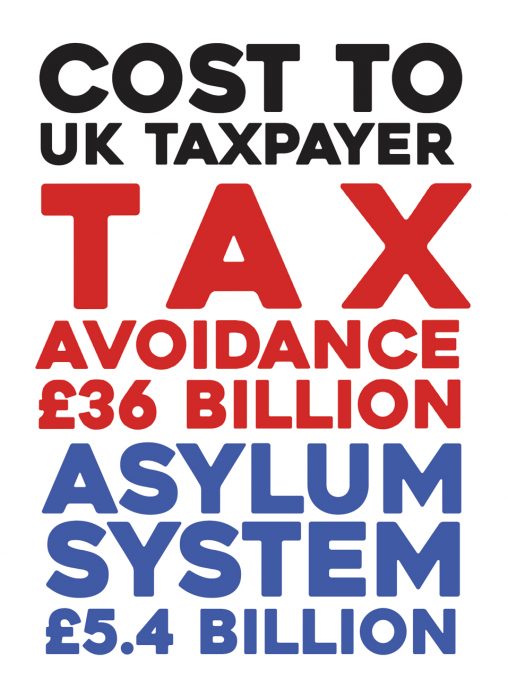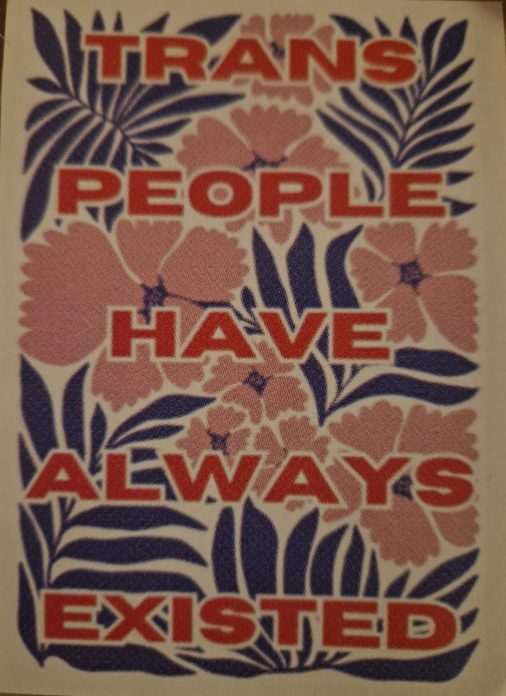Kroptokin, the Prince, sticker
£0.08
Shamelessly taken from a t-shirt spotted on the AK Press website we find this most amusing!
Description
Peter Alekseevich Kropotkin, the son of Aleksei Petrovich Kropotkin and Yekaterina Nikolaevna Sulima, was born in Moscow, Russia, on 12th December, 1842. The family was fairly wealthy and came from a noble lineage (Peter was in fact a prince).
Peter’s mother died of tuberculosis in 1846. Two years later his father married Yelizaveta Mar’kovna Korandino. According to one source: “Yelizaveta caused a great deal of tension in the house. An aggressive, domineering woman, she attempted to erase all traces of the children’s departed mother rather than offering them comfort. These actions caused further resentment between the children and their father.”
His brother Nikolai (born in 1834) left the family home for military service in the Crimean War. His other brother, Alexander Kropotkin (born in 1841) also left home to join the Moscow Cadet Corps. Peter and Alexander had spent a great deal of their early lives together and were very close. Peter went to study at the First Moscow Gymnasium. He was not terribly impressed with the school, feeling that “all the subjects were taught in the most senseless manner.” However, while at school, he did develop a strong interest in history and geography. At the age of 15 Kropotkin entered the aristocratic Corps des Pages of St. Petersburg and four years later became personal page to Tsar Alexander II.
Kropotkin first became aware of political censorship in Russia when his older brother, Alexander, was arrested in 1858 while a student at St. Petersburg University as a result of having a copy of a book, Self-Reliance, by Ralph Waldo Emerson. The book had been lent to him by one of the faculty, Professor Tikhonravof, but he refused to tell the police this because he did not want to get into trouble with the authorities. When Tikhonravof heard of Kropotkin’s arrest he went at once to the rector of the university, and admitted that he was the owner of the book, and the young student was released.
In 1862 he applied for a commission in the Cossack Regiment serving in Eastern Siberia. After reading the work of Pierre-Joseph Proudhon and the exploits of Mikhail Bakunin he developed an interest in anarchism. Kropotkin took a growing interest in politics. As Paul Avrich points out: “In Siberia he shed his hopes that the state could act as a vehicle of social progress. Soon after his arrival, he drafted, at the request of his superiors, elaborate plans for municipal self-government and for the reform of the penal system (a subject that was to interest him for the rest of his life), only to see them vanish in an impenetrable bureaucratic maze.”
Disillusioned by the limits of these reforms, he undertook a geographical exploration in East Siberia and produced a paper on his theory of mountain structure. Kropotkin’s reports on the topography of Siberia won him immediate recognition and in 1871 he was offered the coveted post of secretary of the Imperial Geographical Society in St. Petersburg. However, he rejected the post because of his new political commitment. “Although I did not then formulate my observations in terms borrowed from party struggles, I may say now that I lost in Siberia whatever faith in state discipline I had cherished before. I was prepared to become an anarchist.”
In 1872 Kropotkin joined a group that was spreading revolutionary propaganda among the workers and peasants of Moscow and St. Petersburg. He joined the Chaikovskii Circle, a group committed to disseminating propaganda among workers and peasants in order to prepare the way for a social revolution. They also published the work of writers such as Karl Marx, Alexander Herzen, Nikolai Chernyshevsky, Peter Lavrov, John Stuart Mill and Charles Darwin.
In March 1874 he was arrested by the police. His house was searched and they found copies of a revolutionary manifesto that had been written by Kropotkin. They also found his diary and several books that had been banned by the authorities. Although they found plenty of incriminating evidence, the police had to bribe several witnesses to get a conviction. Kropotkin was imprisoned in the Peter and Paul Fortress but in 1876 he was able to escape and fled to Switzerland.
In 1876 his brother, Alexander Kropotkin, was arrested and charged with “political untrustworthiness” He was exiled to Minusinsk in Siberia, more than 3,000 miles from St. Petersburg and about 150 miles from the boundary line of Mongolia. His wife and children accompanied him into exile. He later told George Kennan that he thought he was being punished because of the political activities of his brother, Peter Kropotkin, who had been imprisoned two years earlier for being a member of the Chaikovskii Circle: “I am not a nihilist nor a revolutionist and I never have been. I was exiled simply because I dared to think, and to say – what I thought, about the things that happened around me, and because I was the brother of a man whom the Russian Government hated.”
After the assassination of Tsar Alexander II his radical socialist views made him unwelcome in the country and in 1881 he moved to France where he became a member of the International Working Men’s Association (the First International), a federation of radical political parties that hoped to overthrow capitalism and create a socialist commonwealth.
Kropotkin continued to be interested in the work of Charles Darwin. He had profound respect for Darwin’s discoveries and regarded the theory of natural selection as “perhaps the most brilliant scientific generalization of the century”. Kropotkin accepted that the “struggle for existence” played an important role in the evolution of species. He argued that “life is struggle; and in that struggle the fittest survive”. However, Kropotkin rejected the ideas of Thomas Huxley who placed great emphasis on competition and conflict in the evolutionary process.
In 1880 Kropotkin read an article by Karl Kessler, a Russian zoologist, entitled On the Law of Mutual Aid. Kessler’s argued that cooperation rather than conflict was the chief factor in the process of evolution. He pointed out “the more individuals keep together, the more they mutually support each other, and the more are the chances of the species for surviving, as well as for making further progress in its intellectual development.” Kessler died the following year and Kropotkin decided to spend time developing his theories.
Kropotkin published An Appeal to the Young in 1880. Anna Strunsky wrote that “hundreds of thousands had read that pamphlet and had responded to it as to nothing else in the literature of revolutionary socialism”. Elizabeth Gurley Flynn later claimed that the message “struck home to me personally, as if he were speaking to us there in our shabby poverty-stricken Bronx flat.”
In 1883 Kropotkin was arrested by the French authorities. He tried at Lyon, and sentenced, under a special law passed on the fall of the Paris Commune, to five years’ imprisonment, on the ground that he had belonged to the International Working Men’s Association. While in prison Kropotkin’s first ideas on anarchism were published. He was eventually released in 1886 and moved to England. Over the next few years he lived in Harrow, Acton, Ealing, Bromley and Highgate.
While living in England he became friends with other socialists, including William Morris, Keir Hardie, James Mavor, Tom Mann and George Bernard Shaw. Hardie once commented that if we were all like Kropotkin “anarchism would be the only possible system, since government and restraint would be unnecessary”. In 1886 Kropotkin and his socialist friends organized a mass rally in London protesting against the death sentences imposed on the conviction of Albert Parsons, August Spies, Adolph Fischer, Louis Lingg, George Engel, Oscar Neebe, Samuel Fielden and Michael Schwab for the Haymarket Bombing.
In 1886 he helped to establish the anarchist journal, Freedom. As anarchism’s most important philosophers he was in great demand as a writer and contributed to the journals edited by Benjamin Tucker (Liberty), Albert Parsons (Alarm) and Johann Most (Freiheit). Tucker praised Kropotkin’s publication as “the most scholarly anarchist journal in existence.”
The following year he published In Russian and French Prisons. He argued that prisons are “schools of crime” and that by “subjecting him to brutalizing punishments, teaching him to lie and cheat, and generally hardening him in his criminal ways, so that when he emerges from behind bars he is condemned to repeat his transgressions…. Prisons neither improve the prisoners nor prevent crime; they achieve none of the ends for which they are designed.”
Kropotkin continued to develop his ideas on evolution. In 1888 Thomas Huxley published an article entitled The Struggle for Existence. He completely rejected Huxley’s argument that competition among individuals of the same species is not merely a law of nature but the driving force of progress. Kropotkin replied to Huxley in a series of articles where he documented his theory of mutual aid with illustrations from animal and human life. Paul Avrich has argued: “Among animals he shows how mutual cooperation is practiced in hunting, in migration, and in the propagation of species. He draws examples from the elaborate social behavior of ants and bees, from wild horses that form a ring when attacked by wolves, from the wolves themselves that form a pack for hunting, from migrating deer that, scattered over a wide territory, come together in herds to cross a river. From these and many similar illustrations Kropotkin demonstrates that sociability is a prevalent feature at every level of the animal world. Moreover, he finds that among humans too mutual aid has been the rule rather than the exception. With a wealth of data he traces the evolution of voluntary cooperation from the primitive tribe, peasant village, and medieval commune to a variety of modern associations that have continued to practice Mutual support despite the rise of the coercive bureaucratic state. His thesis, in short, is a refutation of the doctrine that competition and brute force are the sole – or even the principal – determinants of social progress.”
Alexander Kropotkin committed suicide on 25th July, 1890. The St Petersburg Eastern Review reported: “On the 25th of July, about nine o’clock in the evening, Prince A. A. Kropotkin committed suicide in Tomsk by shooting himself with a revolver. He had been in administrative exile about ten years, and his term of banishment would have expired on the 9th of next September. He had begun to make arrangements for returning to Russia, and had already sent his wife and his three children back to his relatives in the province of Kharkof. He was devotedly attached to them, and soon after their departure he grew lonely and low-spirited, and showed that he felt very deeply his separation from them. To this reason for despondency must also be added anxiety with regard to the means of subsistence. Although, at one time, a rather wealthy landed proprietor, Prince Kropotkin, during his long period of exile in Siberia, had expended almost his whole fortune; so that on the day of his death his entire property did not amount to three hundred rubles. At the age of forty-five, therefore, he was compelled, for the first time, seriously to consider the question how lie should live and support his family – a question which was the more difficult to answer for the reason that a scientific man, in Russia, cannot count upon earning a great deal in the field of literature, and Prince Kropotkin was not fitted for anything else. While under the disheartening influence of these considerations he received, moreover, several telegrams from his relatives which he misinterpreted. Whether he committed suicide as a result of sane deliberation, or whether a combination of circumstances super induced acute mental disorder, none who were near him at the moment of his death can say.”
In 1892 Kropotkin published Conquest of Bread. It is generally agreed that the book is Kropotkin’s clearest statement of his anarchist social doctrines. As Paul Avrich has pointed out: “Written for the ordinary worker, it possesses a lucidity of style not often found in books on social themes.” Emile Zola said that it was so well-written that it was a “true poem”.
Kropotkin argued that the wage system, which presumes to measure the work of each individual in capitalism, must be abolished in favour of a system of equal rewards for all. Kropotkin suggested a system of “anarchist communism” by which private property and inequality of income would give place to the free distribution of goods and services. The author of Anarchist Portraits (1995) argued: “It was impossible to assess each person’s contribution to the production of social wealth because millions of human beings had toiled to create the present riches of the world. Every acre of soil had been watered with the sweat of generations, every mile of railroad had received its share of human blood. Indeed, there was not a thought or an invention that was not the common inheritance of all mankind… Starting from this premise, Kropotkin argues that the wage system, which presumes to measure the work of each individual, must be abolished in favor of a system of equal rewards for all. This was a major step in the evolution of anarchist economic thought.”
In Conquest of Bread Kropotkin argued that in an anarchist society no one would be compelled to work. He insisted that work is “a psychological necessity, a necessity of spending accumulated body energy, a necessity which is health and life itself. If so many) branches of useful work are reluctantly done now, it is merely because they mean overwork or they are improperly organized.”
Kropotkin was also highly critical of the education system which he described as a “university of laziness”. He argued that it was: “Superficiality, parrot-like repetition, slavishness and inertia of mind are the results of our method of education. We do not teach our children to learn.” Kropotkin was one of the first to argue for “an active outdoor education and learn by doing and observing at first hand”.
Kropotkin insisted that the education system would have to be completely reformed in order to create an anarchist society. “We are so perverted by an education which from infancy seeks to kill in us the spirit of revolt, and to develop that of submission to authority; we are so perverted by this existence under the ferrule of a law, which regulates every event in life – our birth, our education, our development, our love, our friendship – that, if this state of things continues, we shall lose all initiative, all habit of thinking for ourselves. Our society seems no longer able to understand that it is possible to exist otherwise than under the reign of law, elaborated by a representative government and administered by a handful of rulers…. The education we all receive from the State, at school and after, has so warped our minds that the very notion of freedom ends up by being lost, and disguised in servitude.”
Kropotkin rejected the idea of a secret revolutionary party that had been suggested by Mikhail Bakunin. He also criticized the views of Sergi Nechayev. He insisted that social emancipation must be attained by libertarian rather than dictatorial means. Kropotkin rejected the idea of revolution put forward by Bakunin and Nechayev in Catechism of a Revolutionist (1869): “The Revolutionist is a doomed man. He has no private interests, no affairs, sentiments, ties, property nor even a name of his own. His entire being is devoured by one purpose, one thought, one passion – the revolution. Heart and soul, not merely by word but by deed, he has severed every link with the social order and with the entire civilized world; with the laws, good manners, conventions, and morality of that world. He is its merciless enemy and continues to inhabit it with only one purpose – to destroy it.” For Kropotkin the ends and the means were inseparable.
In 1897 his old friend, James Mavor, professor of political economy at the University of Toronto, invited him to speak at a conference in Canada. He was impressed by the agricultural abundance throughout the country and wrote to a friend: “How rich mankind could be if social obstacles did not stand everywhere in the way of utilising the gifts of nature.”
In October 1897, Kropotkin crossed the border into the United States to meet fellow anarchist, Johann Most. Although they had disagreed in the past about politics, Kropotkin argued that “with a few more Mosts, our movement would be much stronger”. Writing in the Freiheit Most described Kropotkin as the “celebrated philosopher of modern anarchism” and that it had been a pleasure “to look into his eyes and shake his hand”.
At Jersey City he was asked by a group of journalists for a statement on his political beliefs: “I am an anarchist and am trying to work out the ideal society, which I believe will be communistic in economics, but will leave full and free scope for the development of the individual. As to its organization, I believe in the formation of federated groups for production and consumption…. The social democrats are endeavoring to attain the same end, but the difference is that they start from the centre – the State and work toward the circumference, while we endeavor to work out the ideal society from the simple elements to the complex.”
The New York Herald reported: “Prince Kropotkin is anything but the typical anarchist. In appearance he is patriarchal, and while his dress is careless it is the carelessness of the man who is engrossed in science rather than that of the man who is in revolt against the usages of society. His manners are those of the polished gentleman, and he has none of the bitterness and dogmatism of the anarchist whom we are accustomed to see here.”
In New York City Kropotkin spoke at a meeting chaired by John Swinton on the dangers of state socialism. One member of the audience later recorded that he “wore a patriarchal beard and beamed on his audience from behind a pair of spectacles like an old fashioned clergyman looking over a familiar congregation.” Another remarked that “his evident sincerity and his kindness held the attention of his audience and gained its sympathy”.
In 1899 Kropotkin visited Chicago and lived in the Hull House settlement, formed by Jane Addams, for a while. Alice Hamilton, one of the workers at the settlement, later recalled: “Prince Peter Kropotkin was one of the most lovable persons I have ever met. He was a typical revolutionist of the early Russian type, an aristocrat who threw himself into the movement for emancipation of the masses out of a passionate love for his fellow man, and a longing for justice. He stayed some time with us at Hull House, and we all came to love him, not only we who lived under the same roof but the crowds of Russian refugees who came to see him. No matter how down-and-out, how squalid even, a caller would be., Prince Kropotkin would give him a joyful welcome and kiss him on both cheeks.”
Robert Lovett admitted that: “Hull House was emphatically the refuge of lost causes. The anarchist agitation had died out, but the fear of it was maintained by press and police to haunt the slumbers of the best people. Miss Addams was attacked for entertaining Peter Kropotkin in Hull House. The celebration of his birthday was an occasion for the visit to Chicago to the mild ghost of anarchism.” Given this hostility Kropotkin decided to return to London.
In his final years Kropotkin concentrated on writing. His works during this period he produced an autobiography, Memoirs of a Revolutionist (1899), Fields, Factories and Workshops (1901), Mutual Aid (1902) and The Great French Revolution (1909) turned him into a world known political figure. Emma Goldman argued: “We saw in him the father of modern anarchism, its revolutionary spokesman and brilliant exponent of its relation to science, philosophy and progressive thought.” and was described by Emma Goldman as the “godfather of anarchism”.
In 1912 Kropotkin moved to Brighton where he stayed for the next five years. After the overthrow of the Tsar Nicholas II in 1917, Kropotkin returned home to Russia expecting the development of “anarchist communism”. When the Bolsheviks seized power he remarked to a friend that “this buries the revolution” and described government members as “state socialists”.
In June 1918, Kropotkin had a meeting with Nestor Makhno, the leader of the anarchists in the Ukraine. He told him about a conversation he had with Lenin in the Kremlin. Lenin explained his opposition to anarchists. “The majority of anarchists think and write about the future without understanding the present. That is what divides us Communists from them… But I think that you, comrade, have a realistic attitude towards the burning evils of the time. If only one-third of the anarchist-communists were like you, we Communists would be ready, under certain well-known conditions, to join with them in working towards a free organization of producers.”
Kropotkin disliked the developments that took place over the next few months and in March 1920 he sent a letter to Lenin that claimed Russia was a “Soviet Republic only in name” and “at present it is not the soviets which rule in Russia but party committees”.
Peter Kropotkin died of pneumonia in the city of Dmitrov on 8th February, 1921, and was buried at the Novodevichy Cemetery in Moscow. His friend, Victor Serge, attended the funeral. “These were heartbreaking days: the great frost in the midst of the great hunger. I was the only member of the party to be accepted as a comrade in anarchist circles. The shadow of the Cheka fell everywhere, but a packed and passionate multitude thronged around the bier, making this funeral ceremony into a demonstration of unmistakable significance.” Kropotkin’s final book, Ethics, Origin and Development (1922) was published posthumously.
© John Simkin, September 1997 – April 2014
Additional information
| Weight | 0.004000 kg |
|---|





